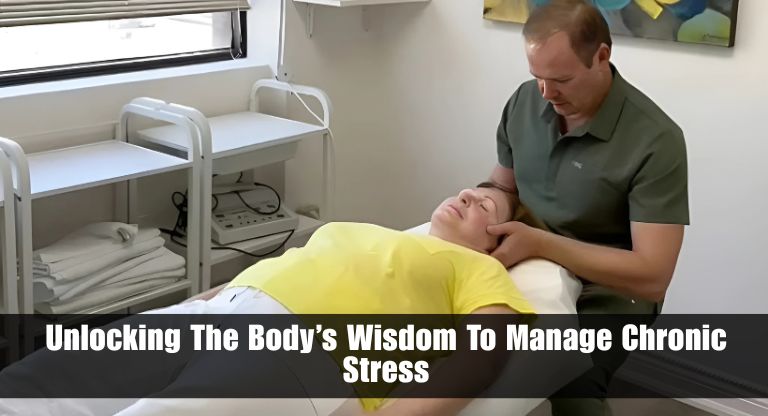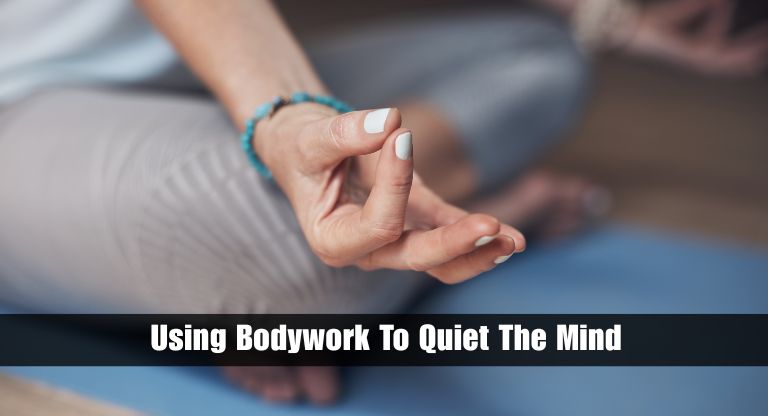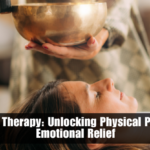Unlocking The Body’s Wisdom To Manage Chronic Stress

We’ve all experienced that dense, chronic stress that refuses to budge even after a weekend break or a decent night’s sleep. It’s no longer pressure. It’s something more. Your body is capable of healing. Seriously, it recalls peace. It recalls tranquility. The secret is learning to tune back in and believe it. At Rebuild Hustle, we’ve watched too many folks burn out in the pursuit of the hustle. That’s why we work on something else, rebuilding from the inside out. Unlocking the body’s wisdom to manage chronic stress begins by reconnecting with the body’s intelligence.
What Chronic Stress feels like?
You don’t need a textbook to recognise when your body’s out of balance. Chronic stress can creep in as:
- Always being “on edge”
- Having trouble sleeping despite being tired
- Muscles that are tense, particularly in the neck and shoulders
- Mind racing that you can’t turn off
- A gut that’s constantly upset
You may have learned to grit it out. So have most of us. But gritting is what landed us here to begin with.
Your nervous system isn’t broken, it’s just stuck
Your body contains an inbuilt system that regulates stress: the nervous system. When a threat arrives, it activates the “fight or flight” switch. That’s handy in small doses, but with ongoing stress, that switch never actually shuts off. The idea isn’t to eradicate stress; that’s unrealistic. It’s about making your body feel secure again, so it ceases to respond to every email, traffic delay, or to-do list like a matter of life and death.

Process of unlocking the body’s wisdom to manage chronic stress
Here’s where we make the switch. Rather than searching for outside solutions, we look inside. At Rebuild Hustle, we lead individuals back to the language of their own body. It’s not woo-woo, it’s down-to-earth, pragmatic, and incredibly effective. Let’s dismantle it:
1. Feel before you fix
We all want to go straight to the fix. But first, we have to sit down and listen. Do this:
- Stop right now.
- Breathe.
- Feel your shoulders, are they held tightly?
- Are you biting your jaw?
That quick check-in is a way of somatic awareness. Your body is sending you messages all the time. Begin paying attention.
2. Move with meaning
Look, nobody’s saying you need to hit the gym for two hours. That’s not it. Honestly, forget all that. This is more about… moving just enough to feel something again. Stretch a little. Walk without checking your phone. Maybe you just lie on the floor and breathe. That counts too.
- A morning stretch slowly
- A phone-free walk
- Letting yourself dance like nobody’s watching (seriously)
The point isn’t exercise. It’s about giving your body a little signal, like, “Hey, you’re not in danger anymore.” That it’s okay to let go, even just for a minute.
3. Breathe like you mean it
We take thousands of breaths every day, but most of them are shallow and tight. Want to change your stress response fast? Change your breath. Try this simple one:
- Inhale slowly for 4 seconds, hold for 4, exhale for 4.
- Do that for a minute or two, and feel the shift.
This isn’t magic, it’s biology. You’re switching on the part of your nervous system that promotes rest and recovery.
4. Let it out
Here’s something no one tells you: it’s okay to feel messy. Angry? Sad? Overwhelmed? Good. That means you’re human. Your body holds onto unexpressed emotions. They show up as tension, fatigue, or even illness. Find healthy ways to release them:
- Write a letter you don’t mail
- Scream into a pillow (yes, really)
- Talk to someone you trust
Feelings need to go somewhere. Let them have a way out.
5. Small things matter more than you think
You don’t have to book a retreat or fix your entire life to begin healing. Sometimes the biggest changes come in the form of the littlest things:
- Taking three deep breaths before you check your phone
- Sitting outside for five minutes and feeling the sun
- Drinking water before your third coffee
- Your body notices. These little acts of care send a message: I’ve got you.

This isn’t about “self-care.” It’s about self-trust.
Let’s be honest. The self-care industry is full of quick fixes and bubble baths. But what your nervous system needs isn’t a spa day; it’s consistency, connection, and safety.
- Rebuilding yourself isn’t about perfection.
- It’s about progress.
- It’s about learning to remain in the present moment when it gets uncomfortable and recognizing that’s where healing begins.

Final thoughts: rebuild, don’t escape
At Rebuild Hustle, we don’t subscribe to the hustle culture that exhausts you. We subscribe to creating a solid foundation mentally, emotionally, and physically. Your body is on your side. It’s not the enemy. It’s the guide. And when you learn to listen, everything shifts and if you’ve been stuck in that non-stop grind, head down, go-go-go, maybe now’s a good time to press pause. Just enough to notice you’re still here. Still breathing. Still you. Not by doing more, but by doing less on purpose.








